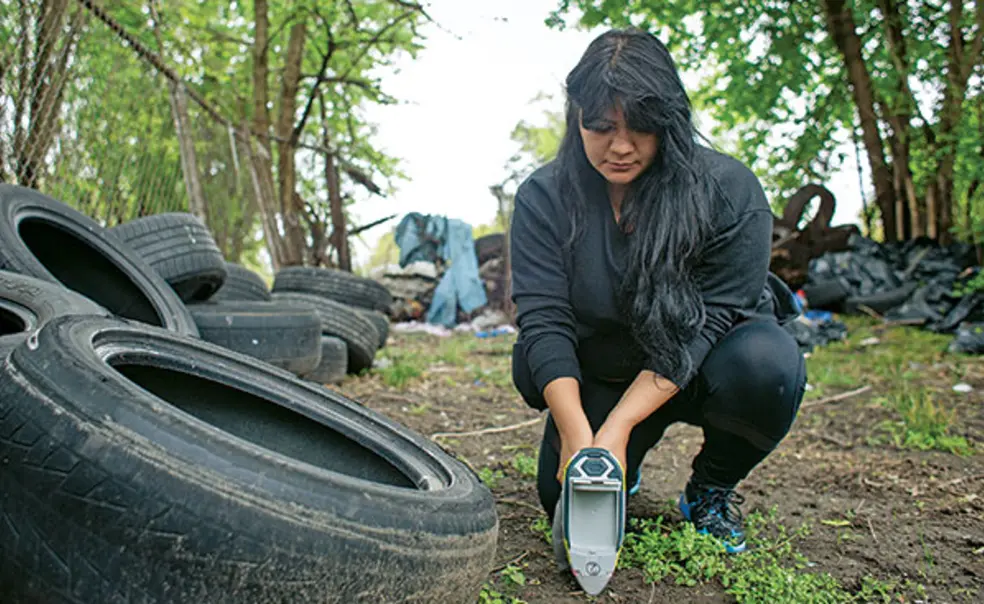Teacher: Assistant professor of geosciences John Higgins
Focus: Students first studied the scientific basis for understanding how humans have altered Earth’s environment and how those changes affect society. During the second half of the course, students teamed up with Isles, a Trenton, N.J.-based nonprofit, to test for lead in the water, paint, and soil of homes in the city. Students visited 14 homes, and 13 tested positive for lead paint. People living in the homes that tested positive for lead and who have a qualifying income are eligible for federal funds that support remediation work by Isles.
Background: Higgins was motivated to create the course in part by the crisis in Flint, Mich., where lead seeped into the drinking-water supply, causing a major public-health problem. He also wanted to expose students to some of the practical skills used by geochemists that are not usually taught in undergraduate-level courses.
On the syllabus: Scholarly articles on topics ranging from the history of lead in the environment to how lead exposure relates to changes in IQ and violent crime.
Who should take the course: “I’d like it to be a class where non-experts can think deeply about a different kind of problem,” Higgins said. Students’ majors include ecology and evolutionary biology, civil and environmental engineering, and comparative literature.
Key takeaway: “The role that humans have played in the environment — this is another case where the human imprint is very clear, and we can use science to identify it,” Higgins said. “And while it is a very science-y class, I think there is immense value in having the students going out and interacting with the community.”
Establishing trust in scientists: “Some segments of the population have either never developed or don’t have a strong trust of science and government,” Higgins said. “I think there’s an important role for academic institutions to actively engage in the community to develop that trust.”












No responses yet